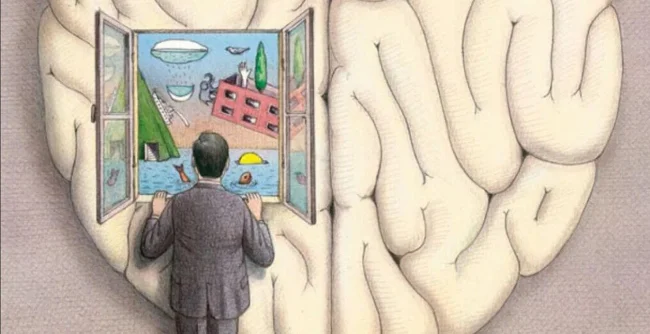10 facts from various fields of knowledge that will unlock the secrets of the world (11 photos)
Did you know there's a connection between the name of a warm sea current and a car brand, and that a common phraseological unit owes its origin to the Latin word for "hoe"? 
If not, get ready for a fresh dose of interesting facts from history, science, and nature that will change your understanding of reality.
1. Incredible Organ 
The Boardwalk Hall Auditorium Organ (also known as the Midmer-Losh and Poseidon) is the organ in the main auditorium of Boardwalk Hall (formerly known as Convention Hall) in Atlantic City, New Jersey. It is the largest and loudest musical instrument in the world. It has over 33,000 pipes, seven keyboards, and was once known to sound six times louder than the loudest locomotive whistle.
2. Intentional Confabulation Is Real 
The human brain can generate false memories—confabulations that seem as real as the real thing. And scientists can intentionally implant them.
3. The Monkey Who Became Both a Pest and a Lucky One 
In 2016, a monkey fell onto an electrical transformer, causing a short circuit that left all of Kenya without power for four hours. The monkey survived.
4. A Film Made Popular by a Religious Controversy 
In 1979, the British film "Monty Python's Life of Brian" was released. Controversy surrounded the film from its funding to its release. For example, no studio wanted to produce the blasphemous comedy, but George Harrison, a big fan of Monty Python, ended up funding it. The film was banned in some parts of the UK (though it managed to become a box office hit there), as well as throughout Norway, Italy, and Ireland. In Sweden, the film was advertised with the slogan "So funny, it was banned in Norway."
5. Belief in Reincarnation 
Mongolian nomads believe that their Bankhar dogs (Buryat-Mongolian wolfhounds) can be reincarnated as their children in the next life. They perform elaborate funeral rites for them, including cutting off the dog's tail and placing it under its head so that it will reincarnate as a human (who no longer needs a tail), and pouring oil into its mouth to ensure a well-fed and prosperous next life.
6. Not a sport, but a flow 
The Volkswagen Golf is named after the Gulf Stream (Golfstrom in German), not the sport of golf.
7. This Ancient Copyright 
The Battle of Cul Drevne (c. 561 CE), sometimes called the "Battle of the Book," was allegedly triggered by Saint Columba's copying of a manuscript without permission, leading to a dispute with Saint Finnian that escalated into a full-scale conflict. This may have been the first instance of copyright in history.
8. A Very Healthy Tea 
Panda tea is fertilized exclusively with panda manure during cultivation. When it went on sale in April 2012, it was the most expensive tea in the world. 50 grams (about 16 cups) sold for $3,500, or about $200 per cup. The owner of the plantation believes that the fertilizer imparts special value to the plant and, consequently, to the drink. However, Chinese scientists have criticized the project, stating that there is no scientific basis for such claims.
By the way, panda sanctuaries make souvenirs from their dung, and they once made a full-size replica of the Venus de Milo.
9. The Origin of a Popular Phraseologism 
The expression "sappily" came into the language from Latin, where the word "sappa" meant "hoe." Through French, it evolved into the term "sape," which denoted a tunnel or ditch used for siege work. In Medieval France, sappers were the name given to those who dug these tunnels. Originally, the phrase "silent sapper" was purely military and described the covert, monotonous work of undermining walls, which had to be carried out undetected by the enemy. Interestingly, the modern word "sapper" also traces its origins to this same source.
10. A Mistranslation That Became the Forerunner of a Scientific Discovery 
When Galileo discovered Saturn's rings, he sent letters to his fellow astronomers announcing the discovery, but in code. One of those who received this letter was Johannes Kepler, who misinterpreted it, thinking it was referring to two moons of Mars, which were only discovered in 1877.





















